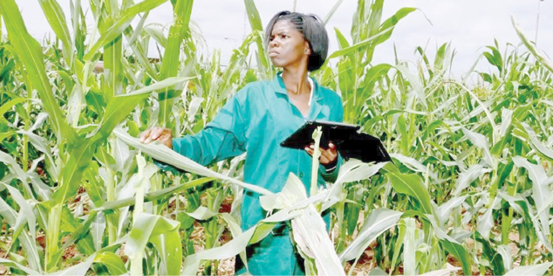The sponsors of the bill seeking to amend the National Biosafety Management Agency (NBMA) Act 2015 failed to appear in a ‘public hearing’ organized by the National Assembly’s Senate Committee on Environment to argue their case.
The legislators also rejected an attempt by one opponent of the technology to submit presentation privately, adding that the essence of the public hearing was to listen to arguments for or against by “all sides” involved “publicly” not “privately.”
The challenges and opportunities for water and sanitation in rural areas
Prolonged strike: How state varsities are pulling out of ASUU struggle
The bill seeks to limit biotechnology application to less than 1%, create room for litigation by people who may claim health consequences from consumption of the technology, biodiversity regulation among others.
A cross section of experts and farmers who took part in the public hearing asked the Senate to reject the bill, pointing that it will reverse all the progress made so far on biotechnology.
The scientists also said the bill will create chaos and open the space for unnecessary lawsuits by ‘gold diggers’ seeking frivolous claims.
They further said it will discourage many experts from improving the genetics resources of our crops for increased productivity.
Prof. Abdulahil Mustapha, Director General, National Agricultural Biotechnology Development Agency (NABDA), in his submission, said the amendment was not necessary as it will limit the practice of science in Nigeria.
“Nigeria has enacted deliberate policies that positioned science and technology as the engine to drive the economy, so turning around to set up unnecessary roadblocks will limit science from taking us to our destination,” he said.
In a submission, Executive Directive, Institute of Agricultural Research, Zaria, Prof. Mohammed Ishiyaku, said that the NBMA act 2015 remained the best protection for the proactive modern biotechnology in Nigeria, adding that “amending the bill now will amount to reversing the gains made since the coming of the law in 2015.”
“The amendments seek to tight the hands of the scientists and make the practice of science impossible in the country,” he said.
Also speaking, Dr Rufus Ebegba, Director General NBMA, said the amendment is planned to kill the desire of Nigerian scientists to contribute to the socio-economic development of the country but open the country up for dumping of unauthorized GMOs.
Prof. Celestine Aguru said the amendment is targeted at driving indigenous Nigerian scientists away from the country as it will end up limiting their scope while frustrating their efforts.
In the same vein, Prof Chiedozie Egesi, who represented IITA, said that the proposal to amend the biosafety law is retrogressive as it will further reverse the progress made in Biotechnology in Nigeria so far.
President of the All-Farmers Association of Nigeria AFAN who also attended the event, Arc Kabir Ibrahim, emphasized that all the
farmers in Nigeria are in support of biotechnology and any attempt targeted at limiting the scope of biotechnology operation in Nigeria should not be welcome.
The AFAN President said that Nigerian farmers need technology that will lift them out of poverty and feed millions of the country’s growing population expected to hit 350 million by 2050.
“I have been farming PBR Cowpea since its inception, and I can categorically tell you that the PBR Cowpea is giving me a wonderful experience, I get more than 3 times the yield of the local beans,” Kabir said.
Addressing members of the public and Senators present at the public hearing, former President of the Genetic Society of Nigeria (GSN) said that Nigeria as a nation has moved past this stage in science and any individual trying to drag the nation backward should not be given any consideration.
African Agricultural Technology Foundation (AATF) Open Forum on Agricultural Biotechnology (OFAB) Project Manager, Mr. Vitumbiko Chinoko, worried that Nigeria, that has already established herself as the leading Biosafety drivers in Africa, would lose her position if her Biosafety act is amended to limit the scope of researchers in the country.




